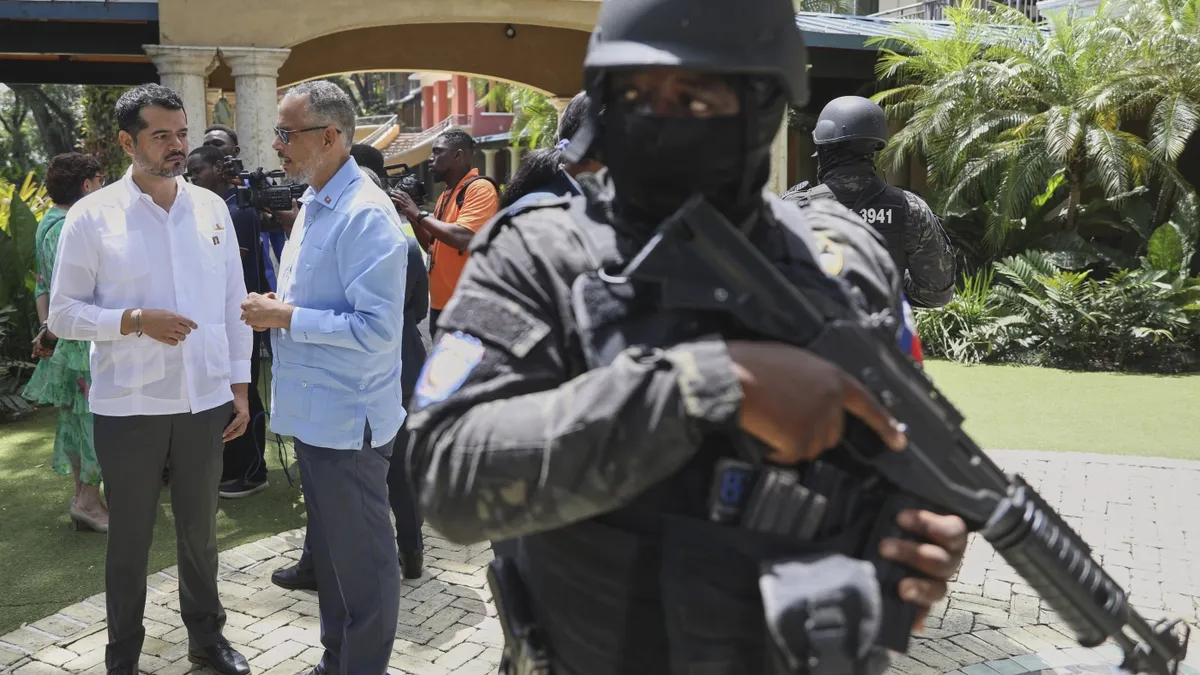
In a dire situation that has captured the attention of the international community, Haiti's gangs have reportedly gained near-total control of the capital, Port-au-Prince. Senior officials from the United Nations expressed grave concerns on Wednesday about the escalating violence that has engulfed this impoverished Caribbean nation. According to Ghada Fathy Waly, executive director of the U.N. Office on Drugs and Crime, approximately 90% of Port-au-Prince is now under the influence of criminal groups, which are expanding their operations into areas that were previously considered safe.
Waly pointed out that southern Haiti, which had until recently been somewhat insulated from the gang violence, has witnessed a significant uptick in gang-related incidents. Furthermore, in the eastern regions, criminal organizations are taking advantage of crucial land routes, including significant crossings like Belladere and Malpasse. Reports indicate that these gangs have launched attacks against police officers and customs officials, further illustrating the deteriorating security situation.
The authority of the Haitian state is diminishing rapidly as gang dominance grows, leading to a cascading effect on public safety and governance. Waly emphasized that criminal groups are stepping into the void left by the inadequate provision of public services, creating their own parallel governance systems. This shift has severely impacted legal commerce, particularly affecting the prices of essential goods such as cooking fuel and rice, which is a staple food in Haiti.
Miroslav Jenca, the U.N. Assistant Secretary-General, echoed the urgency of the situation, warning that the ongoing encirclement of Port-au-Prince by gangs is bringing the nation dangerously close to a complete collapse of state authority. Without increased intervention from the international community, the potential for a total breakdown of governance in the capital looms large.
Since the assassination of President Jovenel Moïse in July 2021, gangs have significantly strengthened their hold, previously controlling an estimated 85% of the capital. The absence of a president since the assassination has left a significant power vacuum. A U.N.-backed mission led by Kenyan police was deployed to Haiti last year to mitigate gang violence; however, this mission remains critically understaffed and underfunded, operating with only about 40% of the anticipated 2,500 personnel.
U.N. Secretary-General Antonio Guterres proposed a support plan in February that included providing drones, fuel, and transportation for the Kenya-led mission; however, this proposal has yet to gain traction within the U.N. Security Council. In response to the escalating violence, Waly noted a troubling rise in private security firms and vigilante groups. While some of these groups aim to protect their communities, others have crossed the line into illegal activities, often colluding with gangs.
In the last three months alone, Jenca reported that these vigilante groups have been implicated in the deaths of at least 100 men and one woman suspected of gang affiliation. Furthermore, the U.N. political mission in Haiti has documented a disturbing increase in sexual violence, with 364 incidents reported from March to April, affecting a total of 378 survivors.
A recent report from U.N. experts covering the period from last October through February highlights how gangs have capitalized on Haiti's political turmoil and the disorganized response to the security crisis. Competing political ambitions and allegations of corruption within transitional governing bodies have hindered meaningful action. The report emphasizes that as gangs expand their territorial control, they gain additional revenue and bargaining power, complicating efforts to restore public security and organize national elections slated for February 2026.
Experts warn that the current state of the Haitian National Police, which is facing significant leadership tensions, coupled with an army in need of rebuilding and the limited capacity of multinational forces, suggests that gangs will continue to hold the upper hand. The report also raises alarming concerns about local police officers participating in human rights violations, including a disturbing trend of extrajudicial killings. In just 2024, specialized police units were involved in 281 summary executions, which included 22 women and eight children.
The situation in Haiti continues to deteriorate, and urgent action is needed from the international community to restore stability and protect the rights of the Haitian people.